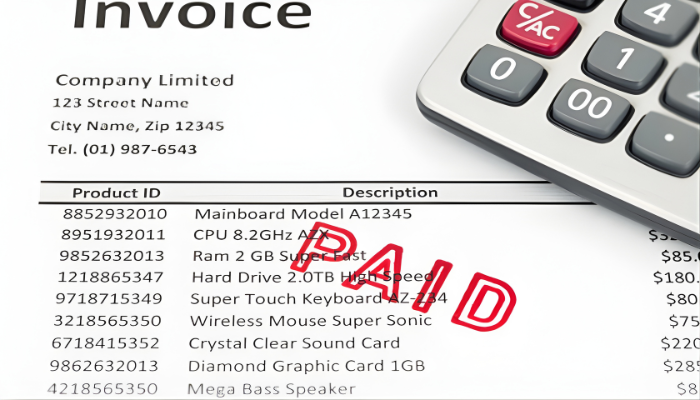
Factoring is a smart way to increase cash flow for small to medium-sized businesses when more traditional lending solutions are unavailable. That being said, it's critical that you choose a factoring company with a credible track record.
The ideal is to choose a company that has an established history, a roster of satisfied client references and who offers competitive rates and terms.
Start Your Interview With Potential Invoice Funding Companies With These 6 Questions
- How long have you been in business? As a successful small business owner, you understand that being new doesn't mean you're not good at what you do. Even so, when the financial bottom line is...well...on the line, you want to make sure you're dealing with a factoring company who has a proven history of successful invoice funding to ensure they have ample industry experience.
Most companies find that factoring resources are of benefit more than once in their lifetime, and many use services like invoice funding on a bi-annual or seasonal basis. Thus, you want to establish a relationship that will last; the longer the factoring company has been around, the more likely you'll be to have a sustainable and long-lived relationship with them.
Membership in respected professional, financial and/or industry associations are another positive attribute. Examples include positive ratings by the Better Business Bureau, or memberships to organizations, like the Commercial Finance Association (CFA) or the International Factoring Association (IFA). - Do you offer both recourse and non-recourse factoring? There are two different types of invoice funding factoring. Recourse factoring is the most affordable option because you, the client, are ultimately responsible if any of your customers fail to pay their bills. This doesn't necessarily mean you'll have to pay the amount from your own coffers, but it can affect the total you are advanced by the factoring company in the future or other terms. In the case of non-recourse factoring, the factoring company takes all the financial responsibility off your shoulders, and is the one who must try to collect if one your customers defaults. For that reason, non-recourse factoring typically costs more.
You may find that one or both factoring options make sense for you, depending on the time of year and/or which of your clients has outstanding invoices. In either case, it's best to work with companies who provide both options so you can tailor their services to your needs at the time. - How well do you know my industry? Different industries have different funding needs. It's nice to work with a company who speaks your same funding language. Professional staffing agencies have different needs than transportation and freight companies. Selecting a factoring company that understands the ins-and-outs of your industry means working with people who have a better grasp of your business model, the challenges inherent in that field and it may also mean access to more creative funding ideas and solutions.
- What type of fee schedule do you offer? Not surprisingly, it's important to read the fine print before signing your factoring company's contract. While the bold print may state a very competitive "flat fee," you may find that the fine print covers associated funding fees such as charges for customer credit checks, administrative charges, wire transfer fees and so on. Make sure that all associated and potential fees are laid out for you in writing so you can compare apples-to-apples and there are no surprises down the road.
- What are your terms? Make sure that the company's terms are comfortable with you. Being stretched too financially thin for comfort can cause companies to panic and take hasty and unnecessary financial risks. Don't take the first "good deal" that comes along. Look for a factoring company who offers fair and reasonable terms. Things to look for include:
--Longer contracts that translate to price breaks or greater payment flexibility.
--Whether or not there are early contract termination fees and, if so, how much are they?
--Adjustable rates depending on customer volume or competitive rates from other factoring companies.
Like fee schedules, the differences in a company's terms may determine whether or not you want to move forward with them. - Will you be able to meet our future needs? Odds are your company has plans to expand, build and grow into new markets. With future growth will come increased needs for funding. This is especially true for companies who plan to add new employees or invest in new products and/or services. It's important to use a factoring company that has the resources to accommodate anticipated growth so your ability to invest isn't limited by their funding restraints.
Use these questions to start the conversation with prospective funding companies so you have a solid understanding of what each one offers, and can feel 100% confident when you sign the final contract.

















